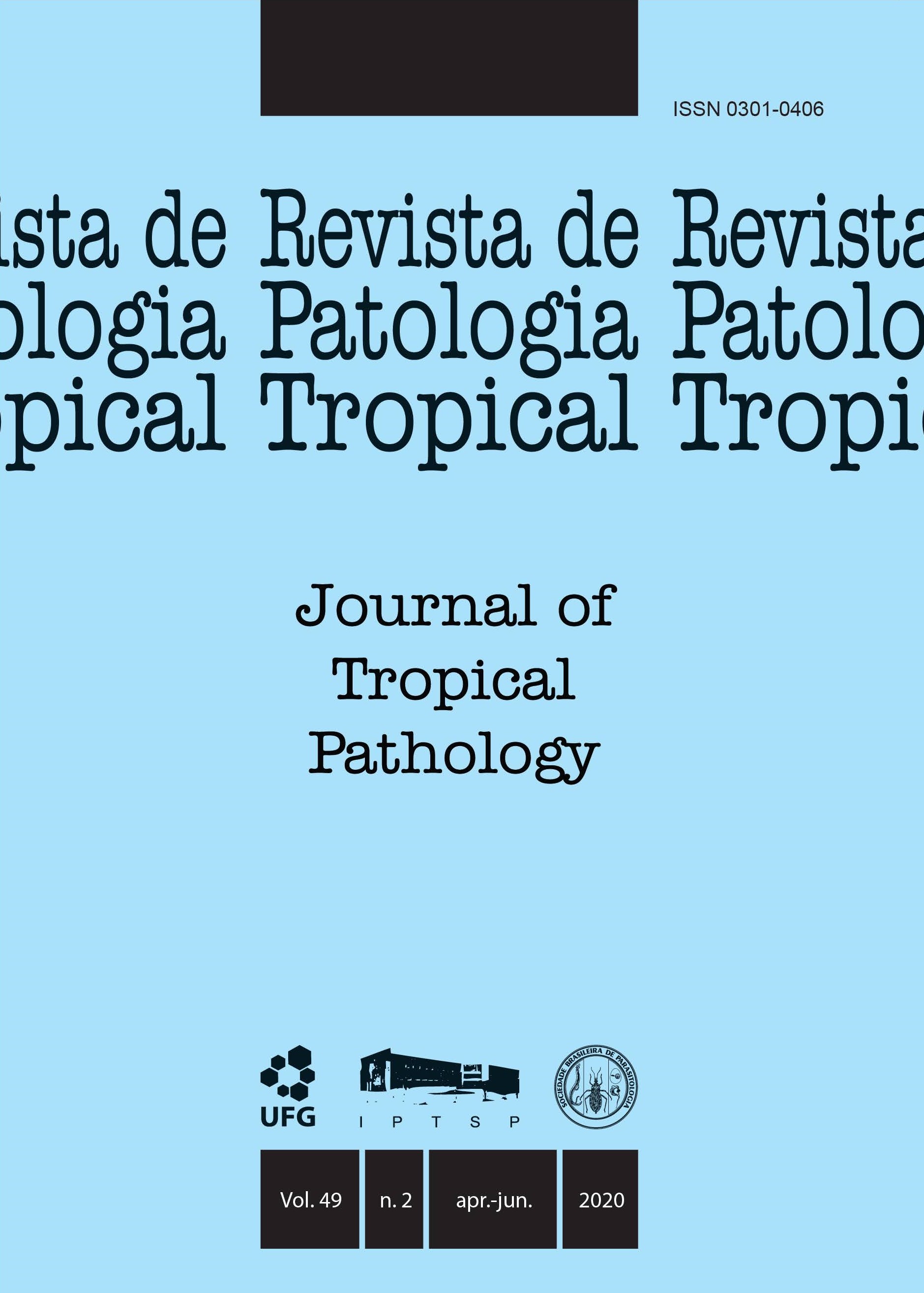PATHOGENIC POTENTIAL OF Vibrio parahaemolyticus ISOLATED FROM TROPICAL ESTUARINE ENVIRONMENTS IN CEARÁ, BRAZIL
DOI:
https://doi.org/10.5216/rpt.v49i2.61338Abstract
Vibrio parahaemolyticus is a potentially pathogenic bacterium that occurs naturally in estuarine environments worldwide. This research aimed to investigate the occurrence of Vibrio parahaemolyticus in estuarine environments and determine the virulence profile in aquaculture environment by molecular techniques and conventional microbiological methods. The analysis included 64 samples of water (n=32) and sediment (n=32) collected in estuaries. The samples yielded 64 strains suspected to be V. parahaemolyticus. The isolates were submitted to biochemical identification using a dichotomous key and PCR for the detection of the species-specific gene tl. Virulence was assessed by testing for urea hydrolysis and ?-hemolysis in erythrocytes (Kanagawa phenomenon) and simultaneous detection of the genes tdh and trh. All but one of the isolates (63/64) were confirmed to be V. parahaemolyticus by genotypic detection of tl. The genes tdh and trh were detected in 57 and 19 isolates, respectively. The Kanagawa test was positive for 51 isolates. Only one isolate was positive for urease. The incidence of tdh/trh-positivity was very high in strains isolated from the environment. The present study demonstrates that the necessity to improve the knowledge of the ecology and pathogeny of V. parahaemolyticus.
Downloads
Downloads
Published
How to Cite
Issue
Section
License
The manuscript submission must be accompanied by a letter signed by all authors stating the full name and email address, confirming that the material has not been published or is under consideration for publication elsewhere, and agreeing to transfer copyright in all media and formats for Journal of Tropical Pathology. The authors will not be paid for published articles. They are solely responsible for the content of those articles, even if the Editor holds the right to adjust them to the norms of the journal.
The reviewers will not be paid for the peer review process.

